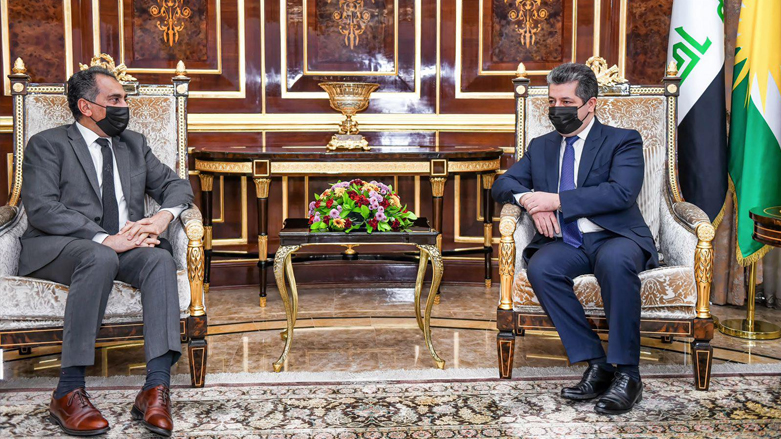Kurdistan Region praises Erbil-Baghdad coordination to bring home migrants trapped on Belarus border

ERBIL (Kurdistan 24) – An official from the federal Iraqi government's foreign ministry met in Erbil on Wednesday with Kurdistan Region Prime Minister Masrour Barzani to discuss ongoing efforts to bring home thousands of Iraqi nationals who have been stuck for weeks in freezing weather on the border of Belarus while attempting to immigrate to nations within the European Union.
The two continued the high-level "coordination between the Iraqi Ministry of Foreign Affairs and the Department of Foreign Relations in the Kurdistan Regional Government (KRG) for the voluntary return of migrants," according to a statement issued by the regional government's media office.
Both Iraq and the KRG follow a longstanding policy of refusing forced repatriations of its citizens, accepting only those who choose to return of their own volition.
The government-sponsored flights have so far brought home over 2,800 of those trapped along the border of Belarus and EU member states such as Poland and Lithuania.
Read More: Over 600 migrants stuck for weeks on Belarus border fly home to Iraq, Kurdistan Region
Airports in both Erbil and Baghdad on early Friday morning received two planes carrying a total of over 600 individuals who were among the thousands of migrants – most of them from Iraq, the Kurdistan Region, and Syria – who were fraudulently sold costly travel packages by traffickers who promised they would take them safely to Europe.
While speaking to Kurdistan 24 shortly after their arrival on a previous flight, returning migrants gave a mix of reasons for setting out on the dangerous journey, from Yezidis (Ezidis) who had been living in Kurdistan Region displacement camps since fleeing the disputed district of Sinjar (Shingal) when ISIS took over the area in 2014 to others who cited a lack of local job opportunities as their motivation.
Safeen Dizayee, Head of the DFR, told Kurdistan 24 last week that the regional Ministry of Interior is carrying out an investigation to identify and prosecute the human traffickers involved in the scheme since they are "playing with the people’s lives."
